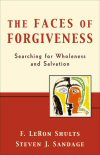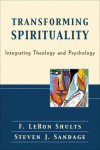Baker Academic Psychology Collection (3 vols.)
Digital Logos Edition
Overview
Explore psychology from a Christian perspective with the Baker Academic Psychology Collection. The volumes in this collection, written by leading psychologists and theologians, take a look at what it means to be human, to forgive, and to partake in human spirituality. You’ll examine the latest scholarship in integrating theology and psychology, explore biblical themes related to all major areas of psychology, and discover the ways that the human face is literally tied to the concept and experience of forgiveness. Offering a solid foundation in biblical psychology and contemporary scholarship, this collection is essential for any Christian student of psychology.
In the Logos editions, the Baker Academic Psychology Collection is enhanced by amazing functionality. Scripture citations link directly to English translations, and important terms link to dictionaries, encyclopedias, and a wealth of other resources in your digital library. Perform powerful searches to find exactly what you’re looking for. Take the discussion with you using tablet and mobile apps. With Logos Bible Software, the most efficient and comprehensive research tools are in one place, so you get the most out of your study.
Explore more Christian psychology with Baker Counseling and Family Collection (5 vols.).
This title is included in the following collections
You can save when you purchase this product as part of a collection.
Baker Ultimate Collection 2022...
$38,273.89$30,599.99

Key Features
- Integrates the fields of theology and psychology
- Offers a biblical foundation for psychological study
- Presents contemporary scholarship on culturally relevant topics
Product Details
- Title: Baker Academic Psychology Collection
- Publisher: Baker
- Volumes: 3
- Pages: 880
- Resource Type: Monographs
- Topic: Psychology
Individual Titles
- Exploring Psychology and Christian Faith by Paul Moes and Donald J. Tellinghuisen
- The Faces of Forgiveness by F. LeRon Shults and Steven J. Sandage
- Transforming Spirituality by F. LeRon Shults and Steven J. Sandage

Introductory psychology courses often raise significant questions about the nature of being human. Christianity, with its emphasis on humans made in the image of God, has a clear-cut perspective. Psychology offers answers too, but they are often only obliquely stated.
Drawn from more than 50 years of classroom experience, this introductory guide provides students with a coherent framework for considering psychology from a Christian perspective. The authors explore biblical themes of human nature in relation to all major areas of psychology, showing how a Christian understanding of humans can inform the study of psychology. Brief, accessible chapters correspond to standard introductory psychology textbooks, making this an excellent supplemental text. End-of-chapter questions are included.
Two accomplished teacher-scholars—neuropsychologist Paul Moes and experimental psychologist Donald Tellinghuisen—take us on a fascinating tour of intersecting big ideas from psychological science and biblical faith. By drawing on both perspectives they deepen our understanding of the ‘fearfully and wonderfully made’ human creature.
—David G. Myers, author, Psychology
Aimed primarily at Christian students taking college courses in psychology, this book is written in such a way that general readers will also benefit from its insights into Christian discipleship. It is well informed, up to date, and wide ranging, and the authors make a sustained effort not to sweep difficult issues under the carpet or to attain premature closure on topics still under debate. The excellent use of cameos enables the reader to grasp the relevance of developments in psychology in real life situations and to better understand how these developments relate to Christian perspectives on the same situations.
—Malcolm Jeeves, emeritus professor of psychology, St. Andrews University
This solid overview of psychology from a Christian perspective uses five themes to explore a biblical view of human nature: relational persons; broken, in need of redemption; embodied; responsible limited agents; and meaning seekers. It will be a helpful supplementary text to use in introductory courses.
—Siang-Yang Tan, professor of psychology, Fuller Theological Seminary
At long last, a fresh new voice on psychology from a Christian perspective. Moes and Tellinghuisen clearly write from a wealth of experience guiding undergraduates in their initial encounter with psychological studies. They connect concepts with lived experience and questions of identity and purpose in a manner that is relational and accessible. I am eager to use this book with my own students. While I do not necessarily share all of the authors’ conclusions and claims, the book is an invitation to a conversation and as such models the sort of thoughtful, challenging, respectful dialogue with which we hope students will become skilled.
—Heather Looy, professor of psychology, The King’s University College
Paul Moes and Donald J. Tellinghuisen have created a really good read for those interested in exploring the ways that Christian faith and psychology go together. Exploring Psychology and Christian Faith works as both a supplementary text in the classroom and a good general read for anyone interested in a Christian view of human nature through the lens of psychology. This is an integrated, organic approach that helps readers understand their Christianity and their psychology better. Well done!
—Everett L. Worthington Jr., author, Moving Forward: Six Steps to Forgiving Yourself and Breaking Free from the Past
Paul Moes holds a PhD from Texas Christian University and is professor of psychology at Calvin College in Grand Rapids, Michigan. He previously taught at Dordt College for 18 years. He has written about Christian approaches to understanding brain function, personal responsibility, and human nature.
Donald J. Tellinghuisen has a PhD from the University of Iowa and is professor of psychology at Calvin College in Grand Rapids, Michigan. He previously taught at Augustana College. He has published research on attention and distractibility as well as human decision making.

Throughout the years, discussions of forgiveness have occurred almost exclusively in religious circles. In the past few decades, however, forgiveness has become a popular topic in contemporary psychology. Unfortunately, there has been relatively little effort to effectively combine theological conceptions of forgiveness with contemporary psychological research. The Faces of Forgiveness, winner of the Narramore Award from the Christian Association for Psychological Studies, steps in to fill this void.
The image of the face is the motif that integrates the two disciplines of theology and psychology. At a basic level the actual human face has elicited a great deal of research on emotions related to forgiveness. At a deeper level the face can serve as a metaphor for the integration of existential and spiritual longings for forgiveness, wholeness, and salvation. And while theological studies of salvation politely acknowledge forgiveness, the authors argue that forgiveness should take a central role, not only because it is warranted by biblical tradition but also because it more adequately engages our postmodern context.
F. LeRon Shults and Steven J. Sandage offer here a model for understanding and practicing forgiveness that integrates psychology and theology, focuses on the importance of relationality, contemplates the hermeneutics of the face, and delineates the ways in which the term “forgiveness” is most commonly used.
The Faces of Forgiveness is a substantive text appropriate for use in both theology and psychology classes. Pastors, psychologists, family counselors, and laity interested in theology, psychology, and spirituality will find it a helpful resource.
This book is a Christian Association for Psychological Studies Narramore Award Winner.
This is a serious and, at times, moving treatment of both the psychological and theological dynamics of the complex process of forgiveness. . . . A weighty book on a perennial topic of concern in our churches and in contemporary society.
—Interpretation
Shults and Sandage have produced a remarkable synthesis of the very best social scientific work on forgiveness, which has emerged so powerfully since the mid-1990s, and the very finest contemporary theological reflection. Insofar as we are asked to love God with our ‘whole minds,’ this convergence of science and theology is not only deeply insightful but also utterly true to the Lord’s command. This work will move the discussion of forgiveness forward by light years.
—Stephen G. Post, professor of bioethics, School of Medicine, Case Western Reserve University
The Faces of Forgiveness is an impressive synthesis of the best of theology and the best of modern psychology on the nature of forgiveness. Shults and Sandage use these sources to replace static and forensic views of forgiveness with a view of forgiveness as dynamic and intersubjective. The book is a remarkable achievement.
—Donald S. Browning, Alexander Campbell Professor Emeritus of Ethics and the Social Sciences, The University of Chicago Divinity School
Shults and Sandage offer an alternative to shallow legal and therapeutic treatments of the dynamics of forgiveness. Theirs is a redemptive model of forgiveness that integrates psychological and theological dimensions using a ‘hermeneutics of face.’ Christians seeking a more satisfying approach to the subject cannot do better than begin with The Faces of Forgiveness.
—Roger E. Olson, professor of theology, George W. Truett Theological Seminary, Baylor University
We have long needed a terrific book such as this that draws on theological insights and psychological insights about forgiveness with equal seriousness and significance. The authors offer a distinctively Christian account of forgiveness that is as rich in analysis as it is helpful in practical significance. I commend it highly to anyone concerned about faithful Christian living.
—L. Gregory Jones, dean of the divinity school and professor of theology, Duke University
F. LeRon Shults is professor of theology at Agder University in Kristiansand, Norway, and the author of several books, including Reforming the Doctrine of God and Reforming Theological Anthropology. He holds PhD degrees from Princeton University and Walden University.
Steven J. Sandage has a PhD from Virginia Commonwealth University. He is a licensed psychologist, and is the Albert and Jessie Danielsen Professor of Pastoral Psychology and Theology at Boston University and the director of the Danielsen Research Center at the Danielsen Institute. He coauthored To Forgive Is Human.

Building on the acclaim of their book The Faces of Forgiveness, F. LeRon Shults and Steven Sandage continue the dialog between theology and psychology with Transforming Spirituality: Integrating Theology and Psychology.
In this collaborative work the authors closely explore the growing academic and cultural interest in spirituality and spiritual transformation. They argue that “we are witnessing a new horizon of converging interest in the intersections between science, religion, and spirituality.” Organized in three parts—transforming spirituality in psychology, transforming spirituality in theology, and modeling spiritual transformation—Transforming Spirituality fills a void in the current literature. In turn, its nine chapters discuss spirituality in relation to health, human development, the biblical tradition, philosophy, and the natural sciences.
Not only does this work examine the positive aspects of spiritual experience, but it also discusses negative phases in spiritual development, such as the reality of suffering and the “dark night of the soul.” The book concludes with case studies that model and illustrate how to apply the authors’ interdisciplinary approach. Transforming Spirituality is essential for classes in psychology, human development, theology, pastoral counseling, and spiritual formation at the undergraduate and graduate levels.
I’ve never seen a book quite like this. Shults and Sandage do no less than provide a vision of how the integrative enterprise would be different if psychology and theology were fundamentally relational in nature. Theoretically rigorous and immensely practical. Highly recommended.
—Michael E. McCullough, psychology professor, University of Miami
Transforming Spirituality takes the recent discussion of spirituality to an entirely new level. Theological depth and interdisciplinary sophistication combine in a book deeply committed to the church. An outstanding contribution.
—Richard R. Osmer, Thomas W. Synnott Professor of Christian Education, Princeton Theological Seminary
Persons who work across the disciplines of theology and the social sciences will find this book crucial to their own research, teaching, and writing. Those who do not will find themselves challenged to venture out for a new view. This is what theology can look like when it does not lose its own way and when it is enlivened and deepened with insights from the social sciences!
—Janet Ramsey, professor emeritus of pastoral theology and ministry, Luther Seminary
As I consider what I’ve read over my professional career, I cannot contemplate a more important and transformative book. Its depth, expanse, and engagement with subjects as diverse as Orthodoxy, Reformed theology, apophatic mysticism, psychodynamic interpersonal depth psychologies, sex therapy, quantum physics, and the sorrow, desire, and joy of being human are a breathtaking glory of imagination. This is the gift of two passionate authors, whose labor is really a doxology, an encounter with the Spirit, that will animate wonder and prompt countless conversations. We may finally have the starting point for articulating a truly believing, postmodern spirituality.
—Dan B. Allender, professor of counseling, The Seattle School of Theology & Psychology
F. LeRon Shults is professor of theology at Agder University in Kristiansand, Norway, and the author of several books, including Reforming the Doctrine of God and Reforming Theological Anthropology. He holds PhD degrees from Princeton University and Walden University.
Steven J. Sandage has a PhD from Virginia Commonwealth University. He is a licensed psychologist, and is the Albert and Jessie Danielsen Professor of Pastoral Psychology and Theology at Boston University and the director of the Danielsen Research Center at the Danielsen Institute. He coauthored To Forgive Is Human.